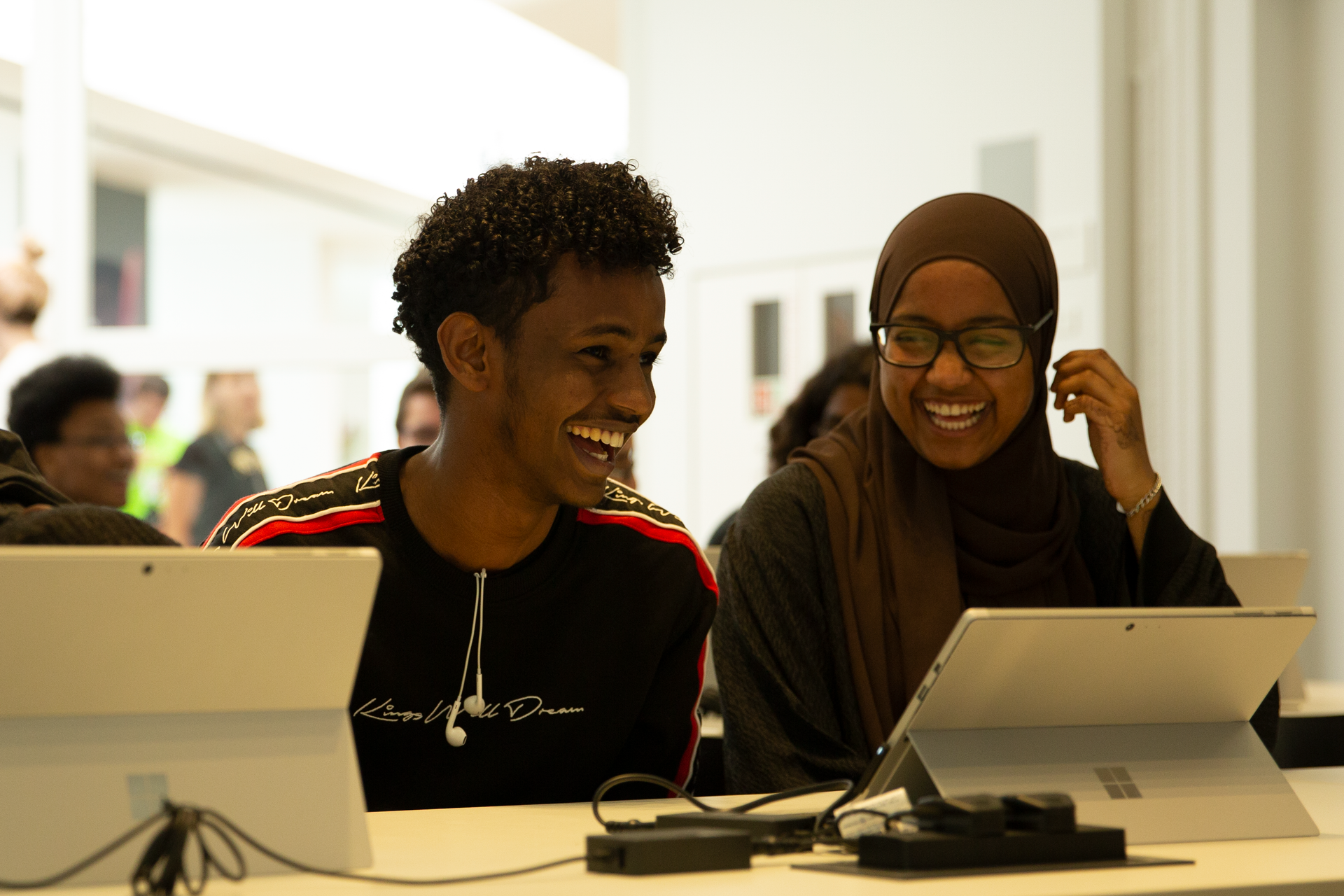Osborne Clarke commits £500k to UK Youth to support young people at risk of digital exclusion
Published on 5th August 2022

Long-term funding programme targeting digital coldspots
Osborne Clarke is committing half a million pounds over the next three years to support leading charity UK Youth in addressing the lack of digital skills and resources for young people.
"It's a critical time for young people and youth organisations, many of whom are still recovering from the pandemic and now face the cost of living crisis as well"
"It's a critical time for young people and youth organisations, many of whom are still recovering from the pandemic and now face the cost of living crisis as well. We're working with UK Youth to help to bridge the gap for young people by funding essential digital skills and services to ensure they don't get left behind," said Bola Gibson, Head of Inclusion and Corporate Responsibility at Osborne Clarke.
"Not everyone is developing vital digital skills evenly," said Vicky Chenery, Head of Partnerships and Philanthropy at UK Youth. "Young people from ethnic minority, lower socio-economic and rural backgrounds are often most acutely affected, lacking the necessary resources to support their development, which is creating digital coldspots across the country."
Research from a recent 2021 report [1] finds 42% - or six million young people – don’t have access to either a suitable device or home broadband. But at the same time, 83% of young people feel that digital skills are essential for their future job and or career.
Many hopes are pinned on young people to lead the ‘digital jobs of the future’. According to the European Union [2], demand for digital skills is expected to increase more than any other area by 2030. Additionally, better digital skills are often associated with better cognitive skills – such as logic, processing skills, and attention.
"Osborne Clarke's long-term commitment and support will make a big difference to the lives of young people in helping them reach their potential"
"Osborne Clarke's long-term commitment and support will make a big difference to the lives of young people in helping them reach their potential. The funding will be provided in the local communities where Osborne Clarke operates - across London, Bristol and Reading. It will also be targeted at the most concerning digital coldspots across the country where digital skills and resources are most in need," said Chenery.
"Being a holistic and future-focused firm is key to our strategy, which is centred on doing right by our people, clients and communities. While we regularly advise our clients on the global trends that are impacting on business, we also appreciate that digital transformation creates challenges and opportunities across all of society. That's why it's so important to us that we also commit our resources locally to help alleviate the digital, relative and absolute poverty," said Bola.
Each successful grantee will receive support to address the needs specific to its community. The funding will be used to buy new devices and software and to supply digital training and outreach. As further sign of the firm's commitment boosting digital skills, Osborne Clarke is also offering pro bono, volunteering and mentoring support to all successful youth organisations.
How the funding will work
In year one, UK Youth will identify a list of grant-ready local youth organisations with digital access requirements. From this longlist, UK Youth will shortlist organisations both local to Osborne Clarke’s offices and across the country that are based in digital coldspots and have significant need. Osborne Clarke and UK Youth will agree on 15 - 20 successful grantees and distribute long-term grants over three years.
In years two and three, there will be an additional £50k per year which will be available to longlisted organisations that weren’t successful in receiving an initial grant.
Being a responsible and ethical business and employer underpins Osborne Clarke's business strategy. The Osborne Clarke For Good framework is the firm's way of ensuing it's a good corporate citizen, a good employer and a good business.

Image credit: UK Youth
[2] The changing nature of work and skills in the digital age, European Union


